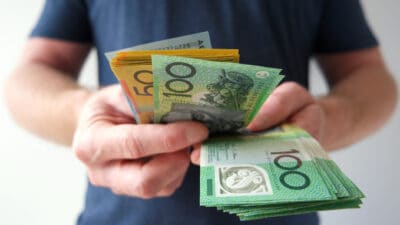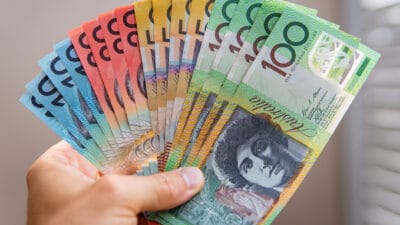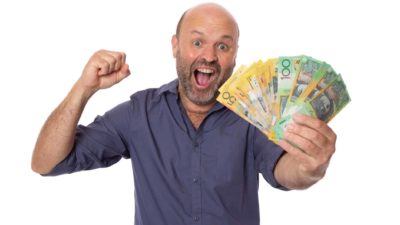ASX dividend stocks can be a great choice for passive income because they can pay large dividends, grow dividends, and deliver share price growth.
There are not many ASX shares that I'd want to buy for a high dividend yield because they are typically less reliable and more prone to payout reductions.
However, there are a few businesses that I believe are appealing choices for lots of passive income and potential long-term capital growth.
Below are two ASX stocks I think can keep paying high levels of passive income to investors for the foreseeable future, though that's not guaranteed.
GQG Partners Inc (ASX: GQG)
GQG is an impressive fund manager that's based in the US, though it is expanding overseas in places like Australia and Canada.
One of the main things that makes this business appealing to dividend investors is that it has decided on a dividend payout ratio of 90% of distributable earnings. However, I don't think that high payout level reduces the company's ability to grow.
GQG's main investment strategies have impressive records of each materially outperforming their benchmarks over the long term. The funds' strong investment performance helps retain existing client money and attract new funds.
The ASX stock hardly charges any performance fees; almost all of its revenue comes from (very reasonable) management fees. Growth of the funds under management (FUM) significantly drives revenue and net profit, which helps pay for the growing passive dividend income.
In the FY24 first-half result, average FUM rose 46.5% to US$139.5 billion, net revenue increased 53.1% to US$363.1 million and distributable earnings climbed 53.7% to US$209.9 million.
This helped the dividend increase 46.3% to US 5.66 cents per share. According to the forecasts on Commsec, the business is projected to pay an annual dividend per share of 18.5 cents for 2024 and 21.6 cents per share in 2025, translating into forward dividend yields of 7.2% and 8.4%, respectively.
Shaver Shop Group Ltd (ASX: SSG)
Shaver Shop is one of the larger retailers of grooming products for males and females. It sells items like electric shavers, clippers, trimmers and wet shave items. It also has a variety of other product ranges, including oral care, hair care, massage, air treatment and beauty categories.
While its products are not as essential as food, I think the business sells products that are usually in demand through all economic cycles, making it somewhat defensive (in my mind) for a retailer.
FY24 sales only declined by 2.3% to $219.4 million, the net profit declined 10.1% to $15.1 million, and earnings per share (EPS) dropped 10.7% to 11.7 cents. This profit generation was enough to maintain the passive dividend income at 10.2 cents per share, which translates into a grossed-up dividend yield of 11.75%. It grew its dividend every year between FY17 and FY23.
I think the ASX stock will be able to deliver profit and dividend growth in the coming years, partly through store network growth and also an economic rebound for the Australian consumer.
It had 123 stores when it released its FY24 result and expects to open two new locations in the first half of FY25. It's also planning to refit between eight to ten stores to bring these locations "up to the latest brand standards". It's also relocating some stores within existing centres to "optimise visibility and passing foot traffic", as well as ensuring the footprint is aligned with its latest category management and merchandising plans.









